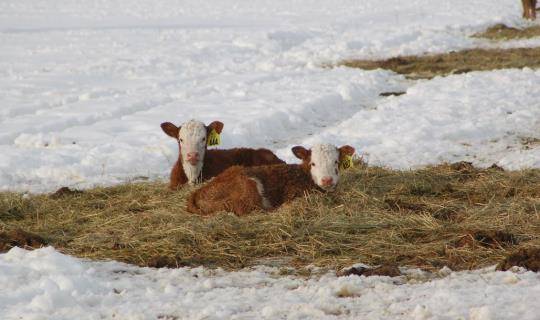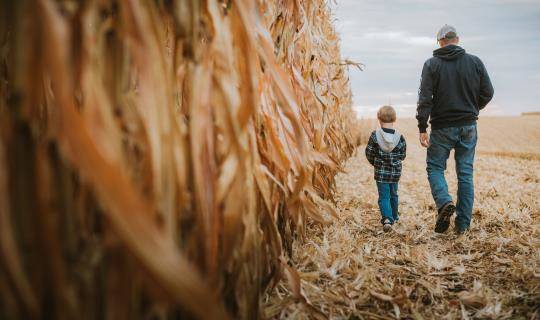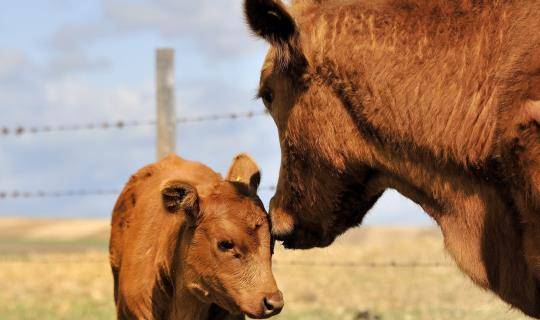Get on your client's team
By Jerry Rusch, DVM
Making your client's herd more profitable can include you in a consulting role. Here’s how.

According to recent CattleFax data, high return/higher profit cattle producers do not compromise in four areas: animal health, nutrition, genetics and marketing. These producers wean a higher percentage calf crop, have more calves born earlier in the calving period, wean more pounds of calf, vaccinate more frequently, and add more value to their calves prior to marketing. For your clients to make their cattle operation more profitable, a team approach is paramount in order to help them make decisions to improve the identified four areas.
As a herd health consultant and part of their team, you can have a big impact on decisions to help them become more profitable. The members of their farm team may vary, but one person that should be included, and will have a big impact, is you as their herd health veterinarian. Your clients need a trusted source for not only guidance on health issues, but also vaccination programs, heifer selection, culling decisions, mineral supplementation, and cattle handling.
Finding the right veterinarian for them is imperative. In some parts of the country, they may have few choices, as there may not be very many veterinarians servicing their particular geographical area. They may need to cast their net a little farther and pay mileage for a consulting veterinarian to help them. In my opinion, the most important characteristic you need as a consultant veterinarian is the ability to work in a cooperative effort with other specialists, such as university extension personnel, a nutritionist, and financial advisor.
"As a herd health consultant and part of their team, you can have a big impact on decisions to help them become more profitable."
Client selection of a consulting veterinarian is based on your knowledge and willingness to work as part of a team. Also, subjective things come into play, such as your ability to clearly communicate in a timely fashion, your relatability to a client’s operation, and personality. Having access to a vast array of informational resources can also influence selection.
Resources such as university personnel, extension personnel, the pathologist at the diagnostic lab, other veterinarians and pharmaceutical company technical service veterinarians can all be a source of information for you to help your client. Membership in such organizations as the American Association of Bovine Practitioners (AABP), Academy of Veterinary Consultants (AVC) or board certification in beef cattle can give an indication that you have an interest in herd health and have the latest information to help them. Owning cattle yourself or being involved in local, state or national cattlemen's associations can also indicate your dedication to the cattle industry. Your working relationships with other farmers and ranchers will also come into play as word of mouth recommendations are the best.
Meeting with the prospective client and discussing their farm goals and expectations would be the first step to develop a consultation relationship with them. Alternatively, if you are already the veterinarian who does their work, a discussion with them about involving you in the decisionmaking process would be warranted. Some clients may not realize your willingness to step into more of a consultation role.
Most veterinarians charge an hourly fee for such consultation services. A discussion with the client about your fee structure is warranted. What is considered billable time? What is the billing rate? This will help eliminate any misunderstandings about billing early in the process. Other aspects that should be covered include preferred method of communication such as email, cell or text. Make sure you clearly communicate your boundaries. Getting a general non-emergency question on Saturday night at 7 p.m. is not acceptable to me as a consulting veterinarian and my clients know it.
Other important characteristics you need to exhibit include problem solving, communication and followup. Problem solving is a very necessary and important skill as a consulting veterinarian. Being able to not only understand infectious disease, but also to understand farm management and its role in health is imperative. You should not only be educated and able to diagnose problems, but be able to clearly communicate and explain the issue and your recommendations to the producer in a clear, concise manner. Equally important is follow-up to make sure the solution to the issue is working; additions or adjustments to the plan can then be implemented.
Risk management, hedging and retained ownership may not be part of your vocabulary or your clients but definitely are terms most financial advisors familiar with livestock understand and can assist them to make prudent decisions. The same parameters used by the client to select a veterinarian can apply to a finding a financial advisor, CPA or attorney for the operation. This may be another area in which you can assist your client, based on working relationships you have through other operations.
Offering consultation services to your clients can be a positive step in moving a farm towards being a high-profit producer, while maximizing their bottom line.
- Animal health
- Nutrition
- Genetics
- Marketing
- Knowledge
- Clear, concise communicator
- Relatability to client operation
- Personality match
- Follow-up to recommendations
- Membership in related organizations
- Herd health veterinarian
- Nutritionist
- Financial advisor
- CPA
- Attorney




